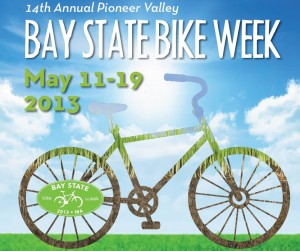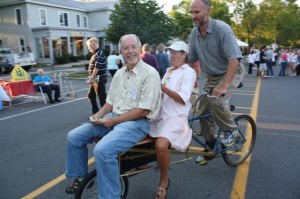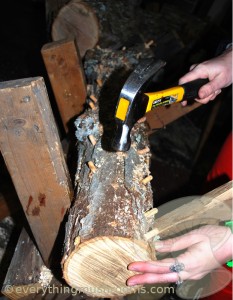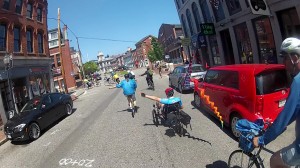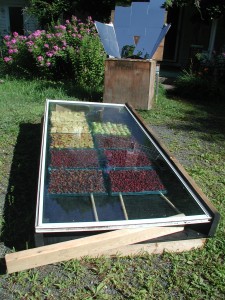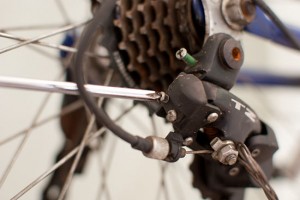 Now that we vetted you on the basics in a previous post let’s see the rest.
Now that we vetted you on the basics in a previous post let’s see the rest.
Oiling and adjusting seems to be the two most important maintenance tasks on a bicycle (There are others, like periodically tightening all the bolts, as having them go loose may have pretty bad consequences, but that somewhat depends on who tightened those bolts and directions usually are in the user’s manual. Another is changing the brake pads, but that you only need to do rarely once they wear down. Or truing a wheel, which takes a lot of playing around, at least for me). Oiling we also looked at before, so by now we can take on a bigger fish, and review break and dérailleur adjustment.
I am not going for perfection here, as you see, just a solid overview of what to do. You can access further details with many pictures on the Internet by doing searches on Google, like “adjusting a rear derailleur” or “setting the brakes on a bike”, etc. Wikihow has a pretty good set of information in general. Other websites also have information like Bicycle Tutor
Anyway, my ground rule is observe how it works and adjust once you got the hang of what is happening and what should happen. Having another (functioning and similar) bicycle available is a bonus. Here are what usually needs adjusting:
Brakes
(If you have them: if you don’t, get some, you may need something better than pedaling backwards one day): the alignment and distance of brake-pads from the breaking surface, that can be the disc on a disc brake, or the wheel rim at most other cases. You do this adjustment, so you can safely, efficiently (and quietly, without squeaking) stop. Why don’t I write the symptom of breaking malfunction, and how to fix them – most of these will apply only to rim brakes – disc brakes are less frequent at this point and harder to get to and less error prone so I will leave them for now.
So say you are biking and need to slow down, so you pull the lever, and… you slow down, indeed, but not fast enough. You can increase the braking effect with pulling both levers engaging both brakes, or tightening the cable that connects the lever with the brake pad. Most brake levers come with a piece that is where the cable leaves the lever, and screws in and out. Screw that thing out with your fingers until you feel the brake engaging when you pull on the lever. If it screw is already out, you need to tighten the cable.
Say you are rolling, then brake, and not only nothing happens, but it is also too easy to use the lever. You realize you didn’t hook back the wire for the brake. I don’t detail it further.
You are rolling the first time in months, and brake… and try harder, but you can’t move the lever. Ah, the cable got wet and now it is rusty. Sometimes taking it apart and oiling it helps, sometimes you need to change the cable…
Dérailleurs
Or speed/gear-ratio-adjusting devices. Most bikes have a front and a rear dérailleur, and if they don’t, they are either single speed, or have an internal gear hub, where all gears are stuffed inside the rear wheel-hub. Most also have cables similar to brakes and the same maintenance applies.
Both front and real dérailleurs tend to have two screws sticking out of it, almost inviting you to put a ‘scwudwiwer’ to their heads. These adjust the range. so if you find you don’t hit all speeds/cogs while trying to use the lever, or your chain falls off the end of the cog-set, those screws may fix the issue.
Set a dérailleur to the largest cog the chain tends to fall off of. Then looking into the body of the dérailleur, see where is the end of one screw in position to the body. If close, but not quite touching, that may be the problem, tighten the screw until it lightly touches. If quite far away, that is the other screw, don’t tighten the screw.
Alternatively, if you can’t get onto a cog, set the dérailleur as close to it as you can, and examine the ends. If one touching loosen that screw and test your thusly adjusted range.
Since these are finer instruments, it may be that there are other problems present. I have a rear dérailleur, that doesn’t want to change to larger cogs, only when I push it by hand. I oiled it, set the limits, etc., but it doesn’t budge. It may be bent, worn out, or clogged by greasy dirt I may have to change it. But I feel I tried my best to help it work, so if I take it to the bike shop, I may learn something new when I see the bike next and have a chance to talk to my guy there.
————————
Adjust air-pressure in the tires
- Up, after a long break in using it, so you don’t waste your energy uselessly,
- Either way, and accommodate the type of surface you are riding on best
- Or a bit down, when the weather gets warm, so you don’t blow the tire.
 The first inoculation went really well. A group of people drilled, hammered, and waxed enthusiastically from 3-5 pm last Saturday. Some people made pictures so luckily it is not only hearsay.
The first inoculation went really well. A group of people drilled, hammered, and waxed enthusiastically from 3-5 pm last Saturday. Some people made pictures so luckily it is not only hearsay. 




